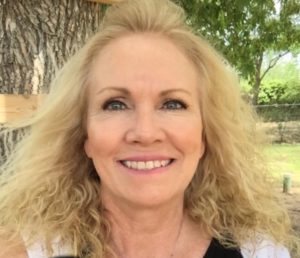Let’s all do our part to end the HIV epidemic once and for all!
Let’s Talk Facts
In 2018 alone, there were 37,968 new HIV diagnoses in the U.S. and dependent countries. Young people in the age group between 13 and 24 are particularly affected by HIV, and in 2018, this age group accounted for 21% of all new HIV diagnoses. Young gay and bisexual men accounted for 83% of these. People who inject drugs, 7%.
You might say, “Well, I’m not a gay or bisexual man and have never injected drugs,” and you may not be in the highest percentage of at-risk persons, but many people who have HIV never saw it coming, either. There are certain ways HIV is spread, and no, you can’t get it from a toilet seat, sharing a drink, food or utensils, or even kissing someone who has HIV.
How you can contract it is through the following:
Blood
Semen
Pre-seminal fluid
Rectal fluids
Vaginal fluids
Breast milk
What this means, basically, is that anyone that has ever had unprotected sex (even once), has shared needles while injecting drugs, or has been exposed to anyone else’s bodily fluids (besides your own baby’s) should be tested for HIV, even if there are no symptoms present. Of course, the more exposures one has, the more at risk he or she is for contracting the virus. That being said, anyone who has unprotected sex is not only at a higher risk of contracting HIV, but also several sexually transmitted infections, or STIs. It needs to be said that if people are contracting STIs, the chance of contracting HIV grows significantly higher.
Stigma Kills
HIV tends to hide behind stigma and ignorance. This is one of the reasons that assuming you are not at risk and not knowing your status could be deadly. Thankfully, having HIV isn’t the death sentence it was in the ‘80s and ‘90s; however, because it is a virus that can hide out until its host is very sick, getting tested for HIV is the No. 1 way for people to know their status in order to stop the spread. Many people are afraid or embarrassed to get tested for HIV for fear someone will make assumptions or judgments about their lifestyle, when really people need to take pride in getting tested. Getting tested for HIV is the one thing that can lead people who test positive to not only go on to lead healthy, long lives, but also it prevents them from unknowingly infecting others with HIV.
Exciting News
So, you get tested and are negative for HIV. Now what? If you have had a definite exposure or have participated in high risk behavior, it is suggested that you get tested again in two to three months, as the virus can be undetectable when someone first contracts it. The good news is, if a test is negative for certain, but people still believe they are at any sort of risk of contracting HIV, they can take one pill a day to prevent it! That’s right! PrEP, or pre-exposure prophylaxis, has a 99% rate of keeping a person from contracting HIV if the medication is taken correctly. In addition, if a person believes he or she has had a possible exposure to the virus, it is vital that the person contact a medical provider right away to get PEP (post-exposure prophylaxis) prescribed to prevent the virus from taking control of the body’s cells. A person has a window of 72 hours to receive and start taking this medication to prevent contracting HIV.
Positive HIV Test?
HIV care has come a long way in the last four decades. In fact, new medications are coming out all the time and getting on the right medication regimen for you is vital for you to live a long and healthy life, as well as enable you to have a normal sex life without fear of spreading the virus. That’s right. We celebrate something called U=U, which means Undetectable = Untransmittable. When those who are HIV positive stay in care and adhere to their medication schedule, their “viral load” can become undetectable, which means they cannot transmit the virus to anyone. Now, that is great news!
It was 40 years ago when what was called the “gay cancer” took many, many lives. There is simply no reason in today’s day and age, particularly in the United States, that anyone should contract HIV. The only way we will be successful in eradicating HIV is if everyone follows this very simple protocol:
Get tested.
Get on PrEP and follow safe and healthy sex guidelines if you are negative and in a high-risk population for contracting HIV.
Get on an HIV medication and care regimen if you test positive so you can live a long and healthy life.
Let’s all do our part to end the HIV epidemic once and for all! QCBN
By Vonda Chisholm
Vonda Chisholm is the executive director of Northland Cares, a specialty HIV and Prevention Clinic that serves HIV positive clients in Yavapai County and provides education, prevention and testing services for all of Northern Arizona. Northland Cares is located at 3112 Clearwater Dr., Prescott, Arizona 86305. Call for information on free testing today, 928-776-4612.






Leave a Reply